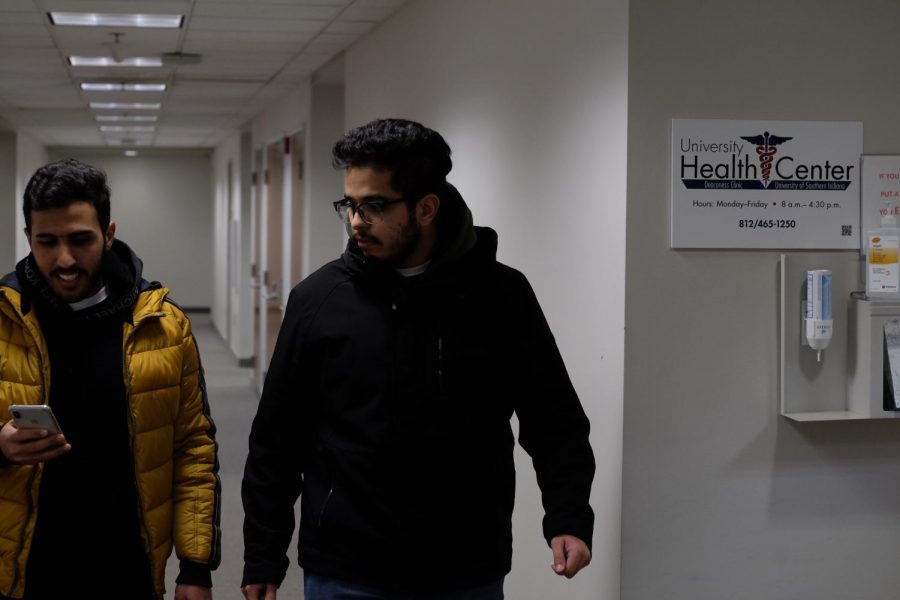Health Center sees rise of flu cases
Ateg Alharthei, senior health administration major (left) and Zaid Altayyar, senior public health major (right), walks past the University Health Center.
February 11, 2020
A minimum of five students a day test positive for influenza at the University Health Center, according to Brandy Sitzman, practice manager at the University Health Center.
Flu season is upon us, as students on campus present with flu-like symptoms. This is congruent with flu trends around the state.
The University Health Center has seen students testing positive frequently with both influenza A and B.
“(February 11, 2020) by 10:00 am, 5 patients have tested positive for the flu,” Sitzman said in an email to The Shield.
Sitzman said students should stay home until they have been without a fever for 24 hours without medications like Tylenol or Advil. She said students can prevent the spread of influenza by washing their hands, covering their cough and getting a flu shot.
The Health Center provides flu shots. If students are on the Office Visit Plan, they can get the flu shot at no cost. Insurance can be billed, but students will be required to bring a front and back copy of their insurance card. If none of these are available, the flu shot will cost $25.
“I did not get the flu shot,” said Alyssa McClung, a senior environmental science major. “However, I am making sure that I am being frequent with washing my hands, drinking lots of water, not getting too close to people who look like they might be sick.”
The Indiana State Department of Health (ISDH) said this flu season is in line with past flu seasons according to their weekly influenza report. Influenza-like illness is in widespread, high activity with 50 influenza-associated deaths this season in Indiana. 12 of these are from the ages 5 to 49.
Flu shots do not make someone immune to influenza, according to the CDC. They reduce the risk of flu illness between 40-60%.
Studies from 2018 show vaccinated adults spent four fewer days in the hospital than those who had not been vaccinated.
The university sent an email Jan. 31 regarding both the flu and coronavirus.
It covered the World Health Organization declaring the coronavirus a global health emergency, CDC warnings and information about the flu. It also included a link to up-to-date information about the coronavirus and a link to a USI Health Center page explaining the coronavirus.
“I read the email, and it’s kind of just broad,” said Ally Grimes, a sophomore nursing major. “Like, there’s this and they think people know what that is already, what it is or how you get it, but it’s not that helpful when you say this big medical term and nobody (understands it).”
Some of the ways to stay healthy during the flu season include washing your hands frequently and avoid sharing objects, according to the University of Wisconsin Hospitals and Clinics website.
UW Health recommends avoiding touching the nose, mouth or eyes, getting enough sleep, reducing stress and eating right and getting regular exercise.








